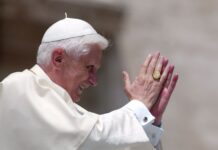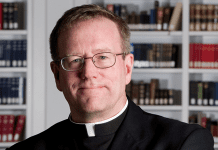Less than a decade after publishing his infamous 95 Theses, Martin Luther himself wrote a letter of disgust at the radical heresies and sectarianism of Protestantism.
Over 500 years later in the wake of Luther’s radical deference to sola scriptura, Protestant sectarianism is at its peak.
“It did not strike him, that to establish a new Church, to ground an ecclesiastical organization on so precarious and volatile a basis, was in its very nature impossible. The seeds of inevitable anarchy lay dormant in such principles.”
Even more so, no Tradition or Magisterium to guide them has led to an excess of individuality and propagation of many radical heresies.
In 1525, 8 years after he published his 95 Theses and only 4 years after the Edict of Worms, Luther wrote his Letter to the Christians of Antwerp. In such a short span of time, the progenitor of the Protestant revolt condemns what he himself helped to create.
With epic irony, he criticizes their sectarianism and how it has led to fractured theological positions with any person claiming to be a prophet.
“There are almost as many sects and beliefs as there are heads; this one will not admit baptism; that one rejects the Sacrament of the altar; another places another world between the present one and the day of judgment; some teach that Jesus Christ is not God. There is not an individual, however clownish he may be, who does not claim to be inspired by the Holy Ghost, and who does not put forth as prophecies his ravings and dreams.”
He even writes that a Christendom unified under the Supreme Pontiff had no such problems.
“When the pope reigned we heard nothing of these troubles. The strong one (the devil) was in peace in his fortress; but now that a stronger one than he is come, and prevails against him and drives him out, as the Gospel says, he storms and comes forth with noise and fury.”
He then calls out 8 more specific heresies as “audacious propositions and “vain imaginations”
“First, he tells you that all men have the Holy Ghost. Secondly, that the Holy Ghost is nothing more than our reason and our understanding. Thirdly, that all men have faith. Fourthly, that there is no hell, that at least the flesh only will be damned. Fifthly, that all souls will enjoy eternal life. Sixthly, that nature itself teaches us to do to our neighbour what we would he should do to us ; this he calls faith. Seventhly, that the law is not violated by concupiscence, so long as we are not consenting to the pleasure. Eighthly, that he that has not the Holy Ghost, is also without sin, for he is destitute of reason.”
Photo credit: Oleg Senkov / Shutterstock.com

















